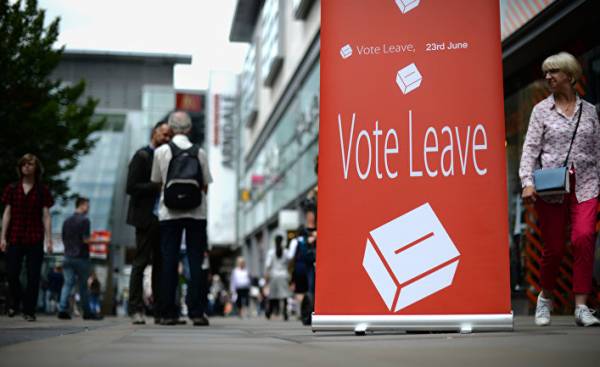
Truth be told, love in separation is growing. This is one of the key findings of a new Pew research center survey Research Center, where he studied European attitudes to the European Union. After Breccia, the attitude towards the unit has improved in many countries, including the United States. In Poland, for example, almost three quarters of the population speak positively about the European Union. About the same in Germany and Spain. About half of all Brits (against 40% a year ago) say they support the EU.
A couple of key insights: the European project is the most popular among the youngest inhabitants of Europe. An impressive 73% of respondents aged 18 to 29 years old support the organization. Only 58% of Europeans older than 50 years share their opinion. People that support the left, more supportive of the EU than those who call themselves conservative. Also of note, the majority of respondents stated that Brakcet bad for the UK, and the majority of Britons say that their care will negatively affect the “European project”. They disagree about what this means for Britain.
It is not surprising that the Greeks (who had suffered from austerity measures) the worst opinion on the unit. Only a third of the country’s positive attitude towards the EU. The growth of support for the EU coincides with the resumption of economic confidence on the continent. The Euro area economy has grown significantly in 2016, and this trend continues. Unemployment fell to single indicators, and the creation of jobs in the beginning of this year accelerated to a nine-year record. However, Brussels is not only the good news. As explained by the authors of the report, “although only a few citizens on the European continent want out of the EU, many strive to make their voices heard on their own referendums on the issue of EU membership”. Mainly, this is due to frustrations regarding the issue of refugees and economic governance of the EU. More than half of all Europeans also want their countries to conclude their own deals with other countries. And almost three quarters want their countries to control future immigration from outside the EU.
Immigration is a particularly difficult challenge for the European Union. Over the past two years millions of people from Syria and North Africa, arrived in Europe, many traveled by boat or on hazardous land routes. In 2015 in Europe came at least a million migrants, a huge leap in 2014. This has led to increased concern over crime, terrorism and displacement. Now many Europeans want their countries have more rights in making decisions about who can come and stay. More than 80 percent of all Hungarians claim that their government should decide who can or cannot immigrate into their country. About 77% of poles; 75% of the French and three quarters of all Germans agree with this. In Italy, Spain and Greece, approval rating almost as high.
Most respondents also want their government to have more control over one of the fundamental EU freedoms — the free movement of people. In 2015, about 1.4 million people migrated from one EU country to another. In the survey the Pew Research Center, most people said they wanted, governments could set their own limits. But to give countries greater autonomy in matters of immigration and trade would be contrary to the core mission of the European Union. “If they abandon the principle, it will be a very serious blow to the fundamental reasons for the creation of the EU,” said Joshua Cole, Professor at the University of Michigan in Ann arbor. “This means that the European project, in its original form, would indeed be rethought.” According to him, negotiations on the trade deals would be contrary to the main purpose of the project. “The essence of the European Union — Europe, acting as a single unit. That’s what it is. Can hardly do to assume that the project will develop better, if the countries can negotiate their own deals,” he said. “If so, then in this case, the European Union superfluous.”
A study by the Pew Research Center also found widespread antipathy towards political parties in their own countries, respondents. The authors of the report write: “Few political parties in Europe are widely popular. With this trend, as a rule, cope established in the countries of Western Europe parties, which are not too affected economically in the years after the crisis in the Euro zone. Support for the eurosceptic right-wing parties is severely limited. None of the respondents was not more than a quarter of the adult population, who praised such parties as the front national in France, the “Dutch party for freedom” (PVV), or “independence Party of the United Kingdom” (UKIP)”.







